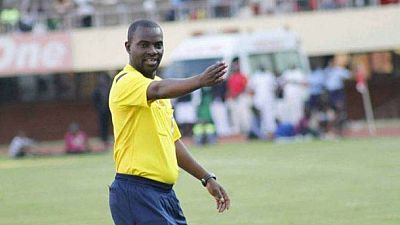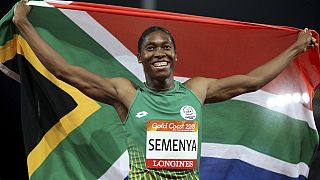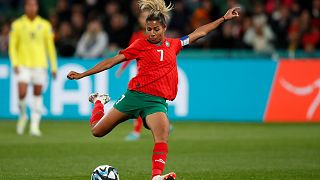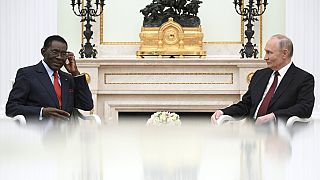Equatorial Guinea
Following the Saturday draw for the group phase of the African Confederation Cup, conducted in Cairo, more revelations of attempted match fixing in the qualifying rounds of the competition have emerged.
On Tuesday, the Zimbabwe Football Association confirmed that one of its referees reported being offered a bribe of $10,000 to fix a CAF Confederation Cup game in Equatorial Guinea.
Two weeks ago, South African referee Victor Gomes also reported to CAF that he and his assistants were offered $30,000 to fix a game in Nigeria in the same competition.
CAF is investigating both cases.
Gladmore Mzambi, vice chairman of the Zimbabwe association’s referees committee, told The Associated Press that referee Norman Matemera reported being offered the bribe by representatives of Equatorial Guinea’s Deportivo Niefang club.
They wanted the ref to influence the second leg of their knockout tie against Ivory Coast’s Williamsville AC on April 18 so they could overturn a 2-0 first-leg deficit.
“We applaud what Matemera did. He has shown a high degree of integrity,” Mzambi said. “He did the right thing. He reported the matter to CAF whilst he was still in Equatorial Guinea. CAF are already looking into the matter.”
Matemera was also reportedly approached by the match commissioner, Togo’s Lawson Mahuwe, who also tried to bribe him on behalf of Deportivo Niefang.
Deportivo Niafeng were eventually booted out of Africa’s second-biggest club tournament on aggregate despite winning the game in question last week 2-1.
A history of cheating
Equatorial Guinea, the small, oil-rich country on the west coast of Africa, has a history of breaking all sorts of rules to try and win in soccer.
In 2016, the vice president of the country’s soccer federation, Gustavo Ndong Edu, was banned for two years by CAF and FIFA for attempting to bribe match officials for a women’s African Cup of Nations qualifier. Edu has since returned to soccer and was elected president of the Equatorial Guinea Football Federation this past weekend, according to the federation.
The country has been embroiled in other cheating scandals, including fielding overage players in youth competitions and ineligible players who aren’t actually from Equatorial Guinea in other tournaments.
Last year, FIFA expelled Equatorial Guinea from the 2019 Women’s World Cup for using fake documents and selecting at least 10 ineligible players in its Olympic team.
Agencies














01:01
Trial of DRC's former Justice Minister Constant Mutamba postponed for two weeks
01:11
Legal complaint targets family of DRC's Félix Tshisekedi for looting
02:05
WAFCON: Super Falcons fans optimistic about the team's performance
01:08
Spanish police reveal Jota was driving above speed limit when he crashed
00:58
Ex-Arsenal mid-fielder Thomas Partey charged with five counts of rape
00:53
Former Nigeria goalkeeper Peter Rufai dies at 61